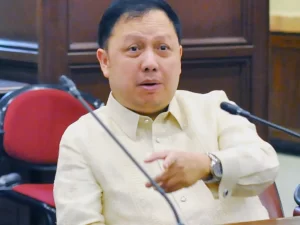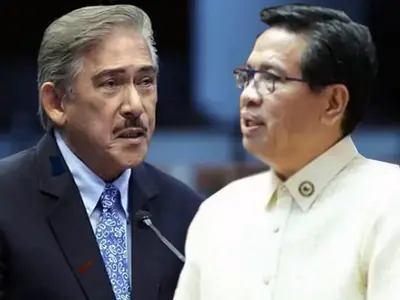
THE House of Representatives under the leadership of Speaker Faustino “Bojie” Dy III on Tuesday opened plenary deliberations on House BIll 4058, providing for a P6.793-trillion national budget for fiscal year 2026.
The session lasted until 2 a.m. Wednesday after the House finished the plenary debates on the proposed budgets of Development Budget Coordination Committee members — Department of Finance (DOF), Department of Economy, Planning and Development (DEPDev) and the Department of Budget and Management (DBM).
In her sponsorship of HB 4058, committee on appropriations Chair and Nueva Ecija Rep. Mikaela Angela Suansing said that each number, each line item in the proposed General Appropriations Bill (GAB) was programmed to inspire hope in Filipinos.
“The constitutional and moral imperative of Congress is clear: To ensure that every centavo of the Filipino people’s tax money is appropriated towards programs that amplify, not destroy, this hope,” Suansing said, describing the 2026 GAB as “the backbone of our fiscal policy and the clearest mirror of our government’s priorities.”
Suansing added that the power of the purse, which the Constitution entrusts to Congress is “a solemn responsibility that demands integrity and vigilance.”
She reminded her colleagues that their challenge is to ensure every peso is grounded in science, feasibility, and genuine need. “Bawa’t piso dapat may pakinabang. Bawa’t proyekto may saysay. At bawa’t programa dapat maramdaman ng bawat Pilipino.”
Suansing framed the House budget deliberations within a challenging fiscal landscape, noting the global uncertainty that continues to weigh on the country’s economy, the rising debt obligations, inflationary pressures reducing both household and government purchasing power, and geopolitical disruptions in international markets as part of this landscape.
“Despite these constraints, the DBCC has anchored the 2026 budget on a sound macroeconomic framework with a Gross Domestic Product growth of six to 7 percent, inflation managed within 2 to 4 percent, fiscal deficit at 5.3% of GDP, and debt to GDP ratio at a sustainable 61.8% by end of 2026,” Suansing said.
She also mentioned that total revenues are projected at P4.983 trillion or 16.2% of GDP, supported by stronger tax collection efforts, improved compliance to current debt obligations, as well as prudent borrowing strategies.
“This fiscal program assures us that even with limited fiscal space, there remains efficient room to prioritize the needs of the Filipino people,” she said.
She said the P6.793 trillion proposed national budget is equivalent to 22 percent of the GDP.
The budget is also centered on human capital development as underscored by President Ferdinand R. Marcos Jr. in his 2025 SONA, according to Suansing.
“In the national expenditure program, the President stressed that the 2026 budget must nurture a future-ready generation — one that is healthy, educated, resilient and competitive,” she said.
She also reported that the appropriations committee approved earlier in the day the committee report containing the Budget Amendments Review Subcommittee’s (BARSc) reallocation of the P255.53 billion budget removed from the flood control projects of the Department of Public Works and Highways.
She said the amount was reallocated to education, health, agriculture, labor and other human capital programs following President’s directive to set a zero allocation for new flood control projects.



